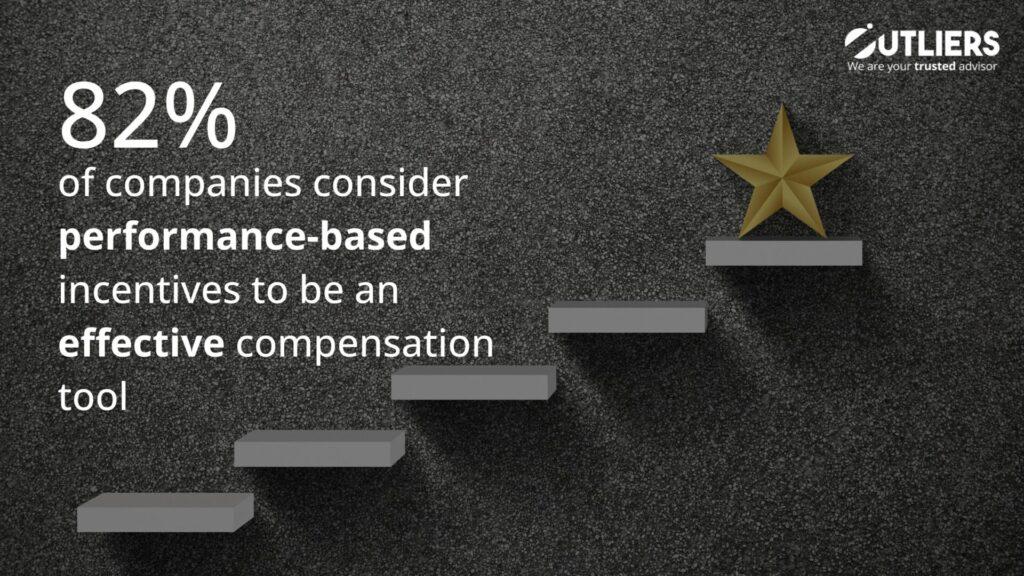Incentive compensation management (ICM) is a crucial component in many companies’ compensation strategy. If you want to delve into compensation models, it is normal to have many doubts. Here are the most common questions that may arise when beginning this journey that benefits organizations and employees.
1. What is incentive compensation management?
Unlike fixed salary, which remains constant, variable compensation is subject to individual, team or company performance.
At its core, variable compensation departs from the traditional notion of a fixed, base salary. Variable compensation introduces a fascinating dynamic: the possibility for employees to be compensated based on their specific contributions and results achieved. This form of payment values effort and performance, and relates personal achievements to financial incentives.
2. What are the objectives of incentive management?
Incentive compensation management has several objectives. On the one hand; motivate the team to achieve specific goals and contribute to the success of the company. It also helps employees agree with the company’s goals, which improves their performance and job satisfaction.
Incentive management, as a remuneration strategy, is proposed with various objectives that influence the motivation, productivity and alignment of employees with the company’s objectives. These key objectives include:
- Achieving strategic goals: By setting incentives related to specific goals, companies can direct employees’ attention to areas that are priority for business growth and success.
- Talent Retention: Incentive management is an effective tool for retaining key employees and high-performing talent.
- ROI: Align labor costs with performance and results, resulting in improved flexibility in operating costs and better ROI.

3. What are common types of incentive management?
The most common types of ICM include annual bonuses, sales commissions, and long-term incentive plans. Each type suits different roles and work objectives.
- Bonuses: These are additional payments given to employees based on their individual performance or the performance of their team or department. Bonuses can be one-time or recurring and are based on specific goals achieved.
- Commissions: This form of compensation is usually applied in sales roles, where employees receive a percentage of the sales made. The greater the amount of sales generated, the greater the commission earned.
- Incentives: These programs offer rewards to employees for achieving specific goals, such as meeting sales quotas, increasing productivity, or reaching certain milestones in project development.
4. What benefits does it provide to employees?
- Motivation: The prospect of earning additional performance-based rewards can motivate employees to try harder and achieve superior performance.
- Recognition and appreciation: Incentive compensation management programs recognize and reward individual effort and achievements.
- Competitiveness and personal challenge: Competition to achieve compensation goals can challenge employees and achieve outstanding results.
5. How can technology help manage variable compensation?
Technology plays a huge role in how we handle rewards that vary based on performance. By automating tasks, improving accuracy, and providing tools to analyze data, you help us optimize performance-based rewards programs. Some examples of commission software are SAP Commissions, Varicent, Captivate IQ and Xactly.
- Automation of calculations and processes: Commission calculation software can do complicated performance-based reward calculations automatically, avoiding human errors and saving time.
- Performance Tracking and Management: Software systems facilitate incentive management and ongoing monitoring of employee performance against variable compensation goals. This helps managers identify areas for improvement and provide timely feedback.
- Reporting and Analysis: Bonus and commission software offers analytical capabilities that allow leaders to examine trends, identify performance patterns, and make informed decisions about adjustments to variable compensation programs.
- Transparency and real-time access: These systems allow employees to access their variable compensation information in real time, fostering transparency and trust in the process.
- Customization: Many software allows configuration to the specific needs of the company, tailoring calculations and reward structures to your culture and strategy.
6: How does incentive management evolve over time?
ICM has evolved over time in response to changes in the economy, industry, technology, and employee preferences. Here are some ways variable compensation has evolved and continues to evolve:
- Greater customization: Companies are taking more personalized approaches to variable compensation, recognizing that employees’ needs and motivations may vary.
- Using data analytics: Companies are using advanced data analytics to measure and evaluate the impact of variable compensation programs. This allows for more precise adjustments and data-driven decisions to optimize the effectiveness of programs.
- Greater emphasis on talent retention: Organizations are using variable compensation schemes as a tool to retain key employees and reduce turnover.
- Focus on sustainability: Variable compensation is moving toward more sustainable, long-term approaches rather than rewards based solely on short-term goals. This may include incentives based on the company’s long-term financial performance.
- Enabling technology: As mentioned above, technology is playing an important role in enabling automation, customization, and transparency in variable compensation management.
These are just some of the most common questions, and if you are looking to delve deeper into the world of variable compensation. At Outliers Consulting we are experts in Incentive Compensation Management (ICM), so we will be your guide to help you choose the solution that best suits your needs.
7. How does incentive management evolve over time?
Incentive compensation management has evolved over time in response to changes in the economy, industry, technology, and employee preferences. Here are some ways variable compensation has evolved and continues to evolve:
- Greater customization: Companies are taking more personalized approaches to variable compensation, recognizing that employees’ needs and motivations may vary.
- Using data analytics: Companies are using advanced data analytics to measure and evaluate the impact of variable compensation programs. This allows for more precise adjustments and data-driven decisions to optimize the effectiveness of programs.
- Greater emphasis on talent retention: Organizations are using variable compensation schemes as a tool to retain key employees and reduce turnover.
- Focus on sustainability: Variable compensation is moving toward more sustainable, long-term approaches rather than rewards based solely on short-term goals. This may include incentives based on the company’s long-term financial performance.
- Enabling technology: As mentioned above, technology is playing an important role in enabling automation, customization, and transparency in variable compensation management.
These are just some of the most common questions, and if you are looking to delve deeper into the world of variable compensation. At Outliers Consulting we are experts in Incentive Compensation Management (ICM), so we will be your guide to help you choose the solution that best suits your needs.

Grupo Traxión shortens its financial closures with OneStream
Learn about our success story of the OneStream implementation for Grupo Traxión, a leading company in the transport industry.

